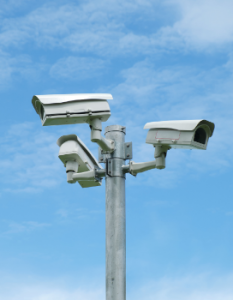On our blog, we have recently discussed the topic of changes in the labour law in 2023, and also leaned into the very important subject of discrimination and mobbing in the workplace, touching on its aspects from the perspective of both sides of the employment relationship. We will devote today’s post to outlining the possibilities of the so-called Hearing Commission on mobbing and discrimination (hereinafter referred to as the “Commission”) as a body within the employer’s structure.
For what purpose can the Commission be established?
The employer, wanting to ensure the highest possible level of respect and guarantee of employees’ rights, may establish a relevant body in order to:
- implement the legal obligation to prevent mobbing and discrimination in the workplace;
- provide assistance in solving problems arising from mobbing or violation of the prohibition of discrimination;
- to consider a specific case of reported hardship by one of the employees.
Importantly, the Commission can be established on a permanent basis to act as a permanent monitoring body, or to resolve a specific case of discrimination or mobbing at an employer. In either case, its activities are aimed at protecting the rights of employees and creating a safe and fair working environment for all employees.
Composition of the Commission
The composition of the Commission is not strictly defined by the Labour Code. According to the recommendations of the National Labour Inspectorate (PIP), the Commission should be impartial and consist of representatives of the employer and employees.
In addition, the Commission’s team may be supplemented by a third party, jointly designated by the employer and employees, with the appropriate background and conflict resolution skills.
Competencies and responsibilities of the Commission
The competences and duties of the Commission, depending on the content of the adopted regulations defining the framework and rules of operation, may include:
- ongoing monitoring of the organization’s situation for possible difficult situations;
- the ability to summon witnesses for questioning in connection with an ongoing investigation;
- conducting correspondence in the form of summonses or announcements;
- drawing up a record of the hearings of summoned witnesses;
- submitting a report on its activities to the employer.
In carrying out the above duties and powers, the Commission should strictly follow the principles of:
- promptness,
- confidentiality,
- impartiality,
- independence,
- orientation to a fair explanation of the facts, and preparation of a recommendation, including proposed constructive solutions.
Summary
Regulations of the labour law do not impose a direct obligation to establish a Hearing Commission on mobbing and discrimination in the workplace. However, it is worth understanding that an employer’s decision to establish such a body can undoubtedly bring numerous benefits. This Commission has the potential to positively influence employees, strengthening trust and improving the atmosphere in the workplace. It is worth taking all kinds of measures to both prevent incidents of mobbing and discrimination at work, as well as to strengthen the awareness of both sides of the employment relationship about aspects of these occurrences.
Author:
Mateusz Turowski, Trainee attorney-at-law (PL)






